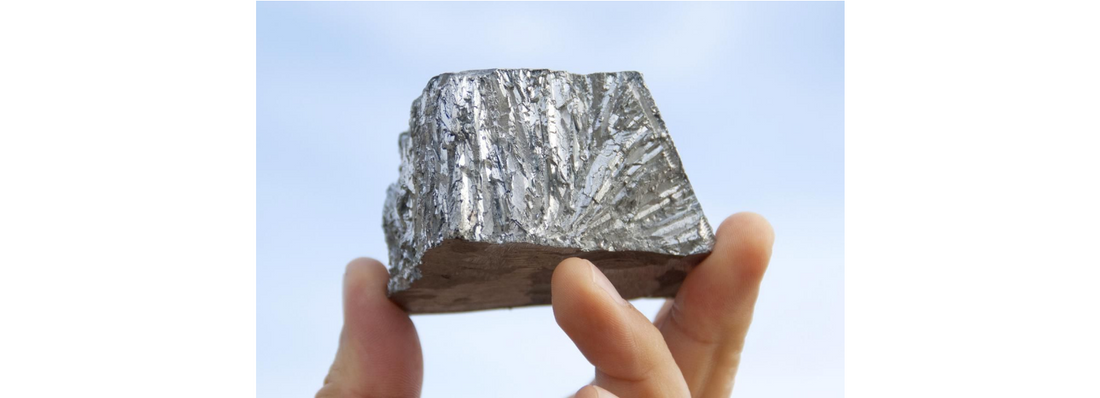
Foundational Nutrient Spotlight: Zinc
Share
What is Zinc?
Zinc is a chemical on the periodic table of elements. It's the 24th most abundant element in the earth's crust. Zinc is an essential trace element for living organisms and plays a vital role in numeral biological processes.

Again, Zinc is from the soil and is a nutrient not a herb or supplement or drug. Every living thing needs Zinc to live. There is a good chance that you (reading this!) don't have enough.
General Roles:
- Zinc is used in over 300 enzymatic reactions in the body
- Zinc is necessary for immune function, wound healing, DNA synthesis, and cell division
- Zinc is crucial for growth and development, especially in childhood, adolescence, and pregnancy
Specific Roles:
- Regulating testosterone and other hormones (big one!)
- Serotonin production. Sometimes Zn is used to help manage depression and anxiety.
- Proper taste and smell perception. A deficiency can impair either or both.
- Preventing macular degeneration, a leading cause of vision loss.
- Synthesizing Retinol Binding Protein (RBP) which allows stored "Vitamin A" to leave the liver. Zinc detoxes Vitamin A and helps protect us from it.
- Antagonizing copper, a toxic heavy metal.
Fun Facts:
- An entire day's worth of absorbable Zinc can be depleted in one single ejaculation (ref: see NutriDetect tweet here).
- Zinc is essential for hair growth (good) and regulates excess hair in unwanted areas (hirsutism), see study here.
Studies:
- Women with lower Zinc had higher PCOS, see here, and here. Copper wreaks havoc on male and female reproductive systems. Zinc keeps copper in check.
- Toxic copper worsens erectile function, see PubMed article: "Copper markedly inhibits the relaxation of rabbit corpus cavernosum: new risk factors for angiopathic erectile dysfunction?"
"Vascu" Role:
Zinc is crucial for endothelial cell function, vascular integrity, and immune regulation. It also acts as a cofactor in antioxidant enzymes like superoxide dismutase, which protect endothelial cells from oxidative stress.
Zinc influences Vascular Endothelial Growth Factor (VEGF) production indirectly by supporting overall cell signaling pathways and repair.
"Vive" Role:
Look around you. Are men facing a crisis of character? Are men and women both littered with hormonal issues? Kids are entering puberty even earlier, some people are unsure of their own identities and
Do I have enough Zinc?
Without knowing a thing about you, it's highly likely that the answer is no. In today's toxic landscape, we're using up more Zinc and getting less. It's always a good idea to get checked!
You can do the following to check Zinc levels:
- Blood draw to check serum zinc levels
- Hair Tissue Mineral Analysis (HTMA). The important piece here is to compare your zinc levels to your copper levels. Zinc levels on their own do not tell us much.
The zinc:copper ratio on your HTMA, along with the zinc blood results, along with your symptoms - all come together to paint a picture about your zinc levels.
It's highly unlikely you're getting the RDA for Zinc in your diet. You may like to supplement.
Food sources
Things that use up zinc
Acute (short-term): Illness, infections, stress (pyshical or emotional), heavy exercise, alcohol consumption, diarrhea and vomiting, burns, surgery, trauma
Chronic (long-term): Poor diet (low zinc intake), excess copper or iron intake, chronic stress, gut issues, high sugar and processed food intake, smoking, air pollution, diabetes, certain medications
How do I get more Zinc?
Zinc Picolinate THORNE
- You can test your levels by running a Zinc Blood test (available here, depending on your country), and looking at the Zinc to Copper ratio on a Hair Tissue Mineral Analysis test. Zinc should be double copper.
- The RDA for men is 11 mg a day and 8 mg a day for women
- We find that Zinc Picolinate is the most effective form for raising Zinc levels
